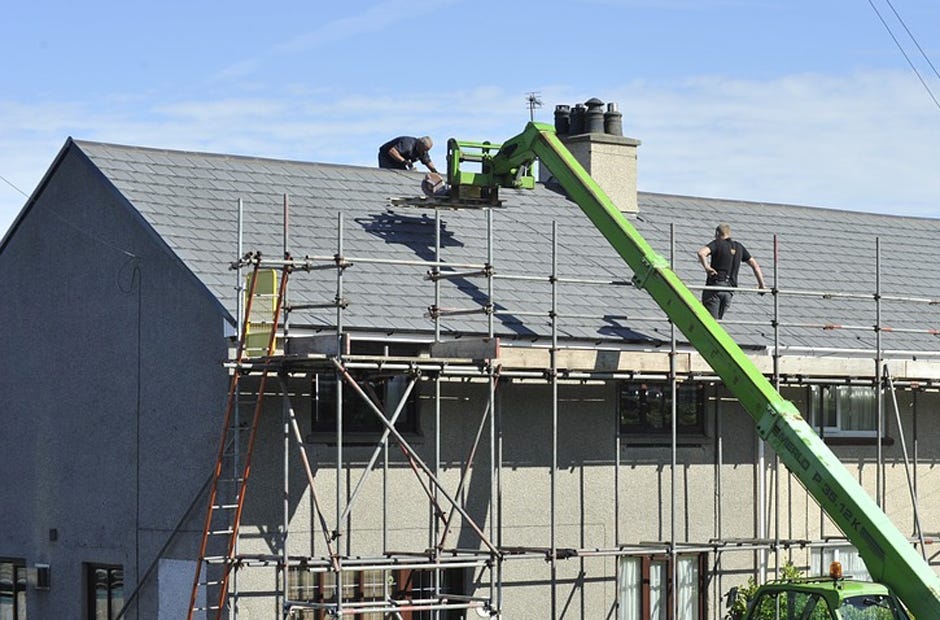
PENSACOLA, Florida — Tropical Storm Hermine (formally known as Tropical Depression No. 9) is starting to show itself in the Bay County area and should be coming closer in the next 24-36 hours.
Even though it hasn’t hit ‘hurricane’ strength, the storm will still result in wind and water damage and possible flooding to many consumers’ property.
BBB Northwest Florida reminds consumers to take certain precautions when dealing with cleanup and making repair decisions. Some of the most common "after-disaster" scams involve water and wind damage caused to roofs, homes or vehicles.
BBB offers the following advice to avoid becoming a victim of an after-disaster scam:
●Although you may be anxious to get things back to normal, avoid letting your emotions get the better of you. Don't be pressured into making an immediate decision with a long-term impact. Start your research with trust by finding a reputable business that can help with cleanup by visiting BBB’s accredited business directory, http://www.bbb.org/northwestern-florida/accredited-business-directory.
●Check with your insurance company about policy coverage and specific filing requirements. Save all receipts if temporary repairs are necessary.
●Take time to shop around for major repairs and get 3-4 estimates based on the same specifications and materials. Check out references that are at least a year old, verify that businesses are licensed or registered to do work in your area, and check with your local building inspector to see if a building permit is required. Get quick, easy, and free quotes from businesses you can trust by using BBB’s e-Quote service, http://nwfl.app.bbb.org/equote.
●Be wary of door-to-door workers who claim to have leftover materials from a job “down the street” or who do not have a permanent place of business. If sales people go do-to-door, check to see if your community requires them to have solicitation permits, ask for identification, and verify the company’s reliability with BBB.
●Be leery if a worker shows up on your doorstep to announce that your home is unsafe. If you are concerned about possible structural damage in your home, have an engineer, architect or building official inspect it. While most roofing contractors abide by the law, be careful allowing someone you do not know to inspect your roof. An unethical contractor may actually create damage to get work.
●Require a written contract agreement with anyone you hire. Be sure their name, address, license number, if applicable, and phone number is included on the contract. Read and understand the contract in its entirety; don’t sign a blank contract! Request a copy of the signed contract to be given to you at time of signature.
●A company who offers to pay your insurance deductible may recoup those costs by inflating their estimate to your insurance company, which leads to insurance fraud. Be sure to ask how they will cover the cost of your deductible before agreeing.
●Never pay in full for all repairs in advance, and do not pay cash! While many companies may ask for a deposit, BBB suggests that no more than one-third of the job be paid up front. Be sure the contract specifies the schedule for releasing payments to the contractor.
●Pay by credit card, if possible; you may have additional protection if there’s a problem.
Clearly written proposals that are detailed and broken down into separate line items are a good sign that the contractor is being thorough and has prepared an accurate estimate.
The following is a partial list of items your estimate or proposal should include:
●The type of material being used, manufacturer and color
●Scope of work to be done, including material and labor costs
●Who is responsible for repairing/replacing exterior landscape or interior finishes that are damaged during the course of the work? Make sure that your contract contains language addressing who is responsible for any damage that occurs as a result of the work.
●Approximate starting and completion dates
●Payment procedures
●Length of warranty and what is covered, e.g., workmanship, water leakage, etc.
●Who will haul away the old materials and/or project waste (e.g. extra materials, packaging, etc.). Is there extra charge for this service?
For additional information and advice you can trust, start with bbb.org.
This article originally appeared on Crestview News Bulletin: BBB Northwest Florida has tips and advice for after Hermine
